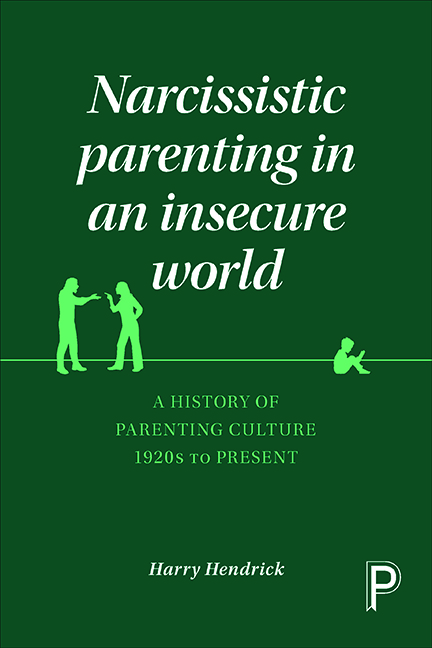Book contents
- Frontmatter
- Dedication
- Contents
- About the author
- Acknowledgements
- Introduction
- Part One The origins of social democracy’s family ideal: 1920s–1940s
- Part Two Characteristics of the ‘Golden Age’: 1940s–early 1970s
- Part Three Influences and examples from the USA
- Part Four Parental narcissism in neoliberal times: 1970s to the present
- Part Five Therapeutic reflections
- Index
eight - The New Labour era, and beyond: narcissism comes of age
Published online by Cambridge University Press: 05 April 2022
- Frontmatter
- Dedication
- Contents
- About the author
- Acknowledgements
- Introduction
- Part One The origins of social democracy’s family ideal: 1920s–1940s
- Part Two Characteristics of the ‘Golden Age’: 1940s–early 1970s
- Part Three Influences and examples from the USA
- Part Four Parental narcissism in neoliberal times: 1970s to the present
- Part Five Therapeutic reflections
- Index
Summary
[N]orms of conduct for the civilised are now disseminated by independent experts…They operate a regime of the self where…one is encouraged to understand one's life, actually or potentially, not in terms of fate or social status but in terms of one's success or failure acquiring skills and making the choice to actualise oneself.
In the last chapter we saw how the foundations for parental narcissism were laid through the emergence of the New Right with policies and attitudes that were intended to erode social-democratic assumptions and remoralise British social relations. I showed that the new behaviourism, in facilitating less kindly ways of problematising and responding to young children's ‘problem’ behaviour, was the principal contributor to the restructuring of child rearing in favour of parental convenience. I also claimed that in changing the broader context in which child rearing occurs, so the meaning and understanding of parenting was altered. This chapter, in focusing on New Labour's innovatory ideal of disciplinary governance, encoded in neoliberal practice, explains how it was that with reference to parent education, the behavioural approach grew in influence in being deployed as normal and natural, becoming just another feature of common sense. In order to relate parenting to the broader culture, and to illustrate aspects of New Labour's conception of children, the chapter opens with brief accounts of how they were used as ‘human capital’ in social investment schemes, and how the well-known ASBO policy positioned them primarily as threats to social order. This is followed by a sustained discussion of the manner whereby the concept of parenting was revised and packaged through parent education programmes whose ethics, promoted in reality television parenting ‘shows’, were absorbed as normal and desirable. My concern is to identify some of the ways in which these developments, within the context of neoliberal politics, encouraged a parenting style that, in emphasising authority, control, discipline and contractual relations, is now so different from that expressed in the social-democratic ideal of the post-war settlement.
Neoliberal children: the ‘iconic’ child as human capital
‘You call us the future, but we are also the present.’ (Children's Forum statement to UN General Assembly)
- Type
- Chapter
- Information
- Narcissistic Parenting in an Insecure WorldA History of Parenting Culture 1920s to Present, pp. 259 - 296Publisher: Bristol University PressPrint publication year: 2016



